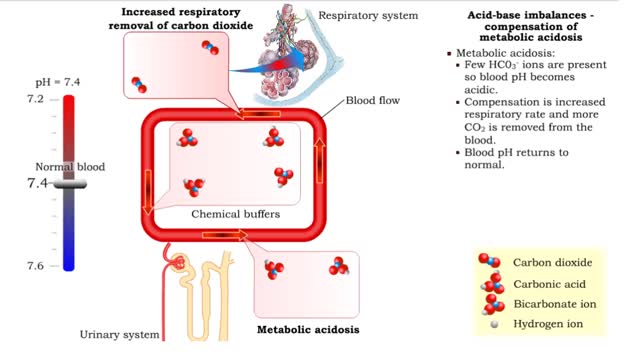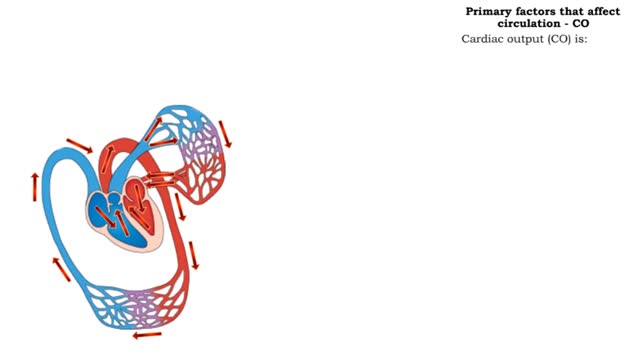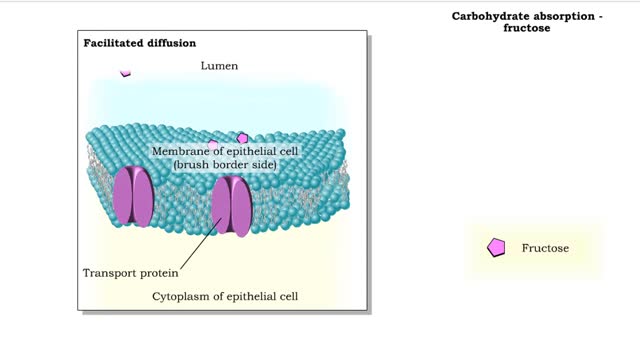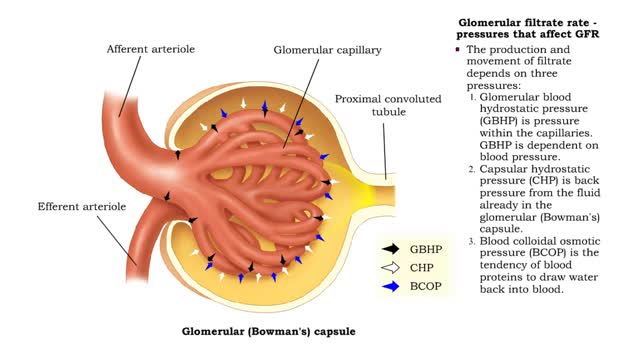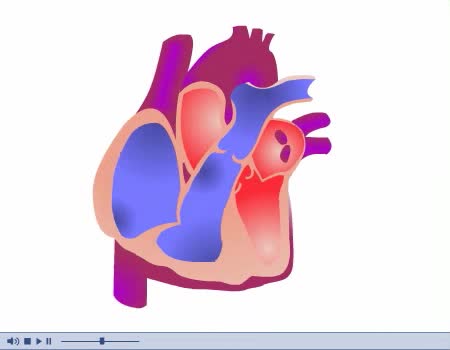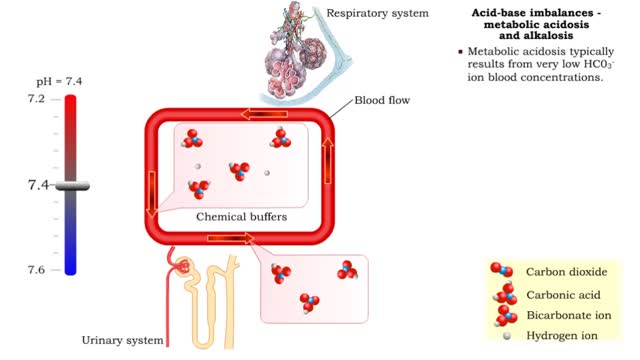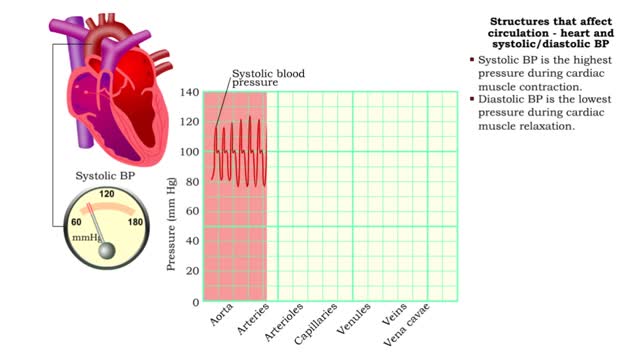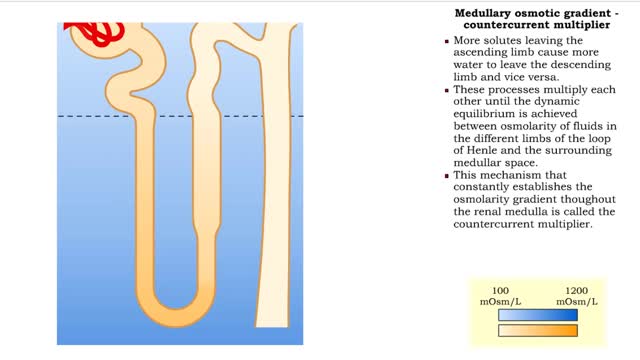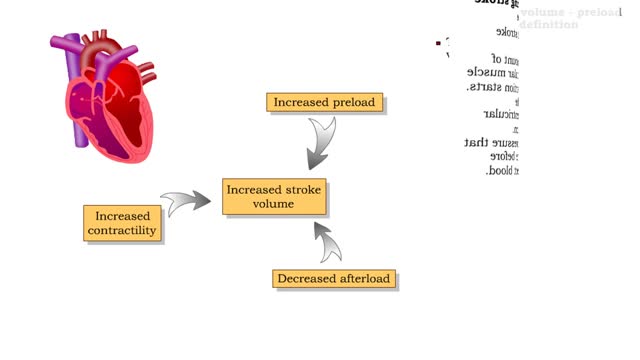Search Results
Results for: 'white blood cells'
Acid-base imbalances - compensation of metabolic acidosis and alkalosis
By: HWC, Views: 11858
1. Metabolic acidosis: • Few HC03- ions are present so blood pH becomes acidic. • Compensation is increased respiratory rate and more CO2 is removed from the blood. • Blood pH returns to normal. 2. Metabolic alkalosis: • Many HC03- ions are present so blood pH becomes alkaline...
The primary factors that affect circulation - MABP, CO and SVR
By: HWC, Views: 12100
Introduction Blood flow is determined by the relative intensities of factors that drive and resist moving blood. • Cardiac output (CO) equals the mean arterial blood pressure (MABP, a driving force) divided by systemic vascular resistance (SVR, a resisting force). • Hormones and the cen...
Carbohydrate digestion (brush border enzymes, end products) & Carb absorption (fructose, galactose)
By: HWC, Views: 11638
• Carbohydrate digestion concludes in microvilli of the small intestine, in brush border epithelial cells. Carbohydrate digestion -brush border enzymes • Four brush-border enzymes are involved: • Alpha-dextrinase breaks down alpha-dextrin chains by removing glucose units. • Sucras...
Glomerular filtrate rate: pressures that affect GFR, NFP & GFR and blood composition
By: HWC, Views: 12212
• The glomerular filtration rate is the amount of filtrate formed per minute within the renal corpuscle. • Once the filtrate is formed it moves down the tubule. • The production and movement of filtrate depends on three pressures: I. Glomerular blood hydrostatic pressure (GBHP) is ...
By: Administrator, Views: 14821
Diastole and systole are two phases of the cardiac cycle. They occur as the heart beats, pumping blood through a system of blood vessels that carry blood to every part of the body. Systole occurs when the heart contracts to pump blood out, and diastole occurs when the heart relaxes after contract...
Acid-base imbalances - compensation of respiratory acidosis and alkalosis
By: HWC, Views: 11954
• When one pH balancing system is affected then the other balancing system attempts to correct, or compensate for, the pH imbalance. - Respiratory acidosis: • Excessive CO2 is present so blood pH becomes acidic. • Compensation is increased secretion of H+ into urine and reabsorption ...
Structures that affect circulation - heart and systolic/diastolic BP
By: HWC, Views: 11610
• Heart generates blood pressure. • Arterioles produce resistance thereby regulating blood flow to tissues. • Veins store blood; kidneys regulate blood volume; both affect venous return and cardiac output. ■ Contractions of the ventricles determine blood pressure, which drives th...
By: HWC, Views: 12529
▪ The primary cause of the medullary osmotic gradient is the active transport of solutes. • In the ascending limb of the loop, active transport of Na+ ions drives passive reabsorption of Cl- ions. • Addition of these ions to the interstitial fluid of the medulla increases its osmolarity...
Definitions of stroke volume, preload definition & Factors influencing stroke volume
By: HWC, Views: 11519
• Stroke volume is directly correlated with cardiac output-the greater the stroke volume the greater the cardiac output. • Stroke volume represents the difference in the amount of blood between: • the volume in the ventricles at the end of diastole (end-diastolic volume EDV); • the ...
Advertisement



